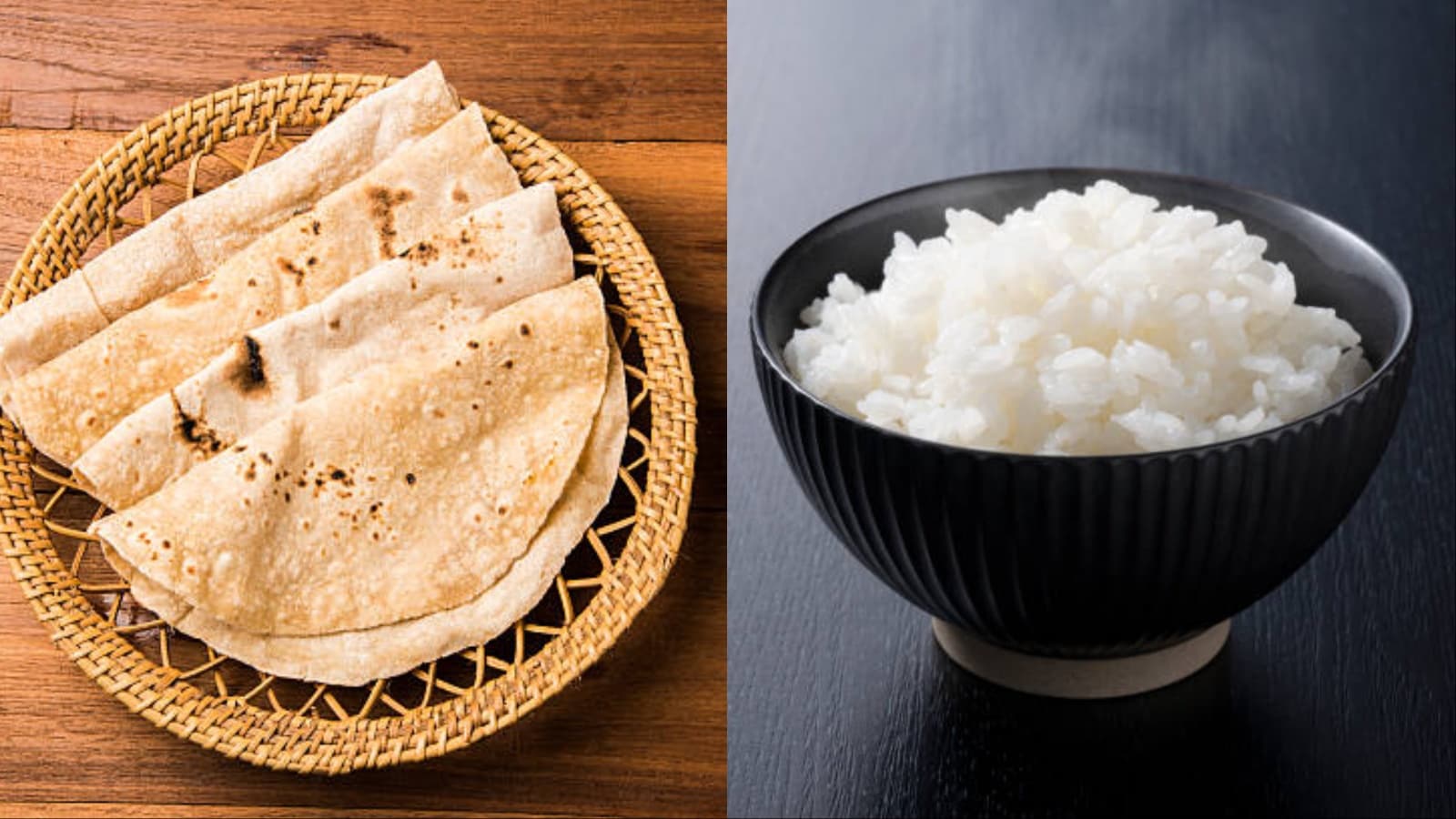By News18,Nishad Thaivalappil
Copyright news18

So integral to our daily food consumption as Indians, the traditional Indian chapati or roti and rice are packed with essential nutrients and healthy carbohydrates. When consumed at night during dinner, the two food items significantly influence our digestion, satiety, fullness and sleep patterns.
Made from whole wheat or multigrain flour, the roti is packed with fibre and digests slowly, which gives us sustained energy and prevents sudden blood sugar spikes. The rice, on the other hand, is low on fibre content and digests quickly. It is considered lighter on our stomach and easily tolerable during bedtime, especially when eaten in moderate quantities.
Why The Debate?
Since dinner is the last meal of the day before we hit the bed, it plays an instrumental role in determining our body’s digestive comfort, metabolism and overall health. It makes the food choice at dinner an important decision and thus fuels the debate between roti and rice. While both are rich in carbs, they stand apart in fibre content, digestion speed, glycemic impact and nutrient composition.
For individuals dealing with digestive complications, it is only more critical to identify the right choice and avoid problems like bloating, acidity, heartburn and interrupted sleep. Eating foods that digest quickly at night helps improve our metabolism and sleep system. In stark contrast, heavier meals keep the stomach too busy when it is supposed to be resting. They cause digestive issues and disrupt our sleep.
Roti or Rice
Both roti and rice have their pros and cons when consumed at night. The roti made of whole wheat or multigrain flour contains high dietary fibre, which slows down the digestive process and ensure that we feel full and energised for long. Eating rotis at dinner can be particularly beneficial to individuals who take part in tiring physical activities in the evening hours. For others, it helps maintain a steady blood sugar count. But excess consumption of rotis, especially by individuals with a sensitive digestion, can lead to problems like bloating, bedtime discomfort and sleep turbulence.
Heavy consumption of rice at night may also lead to digestive stress and other health problems. But since rice is lower in fibre, it does tend to break down faster in our stomach and helps support our sleep system. Rice feels lighter and reduces the risks associated with excess calorie consumption at night.



